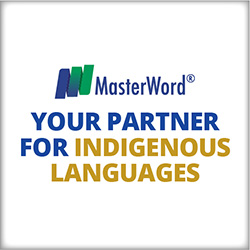This website uses cookies to store information on your computer to ensure you get the best experience using our website. By using the site, you consent to the placement of these cookies. Learn more.
Agree and dismissEligibility
Certification eligibility
CCHI has established specific eligibility requirements or “prerequisites” for interpreters applying to CCHI’s certification programs. Every applicant must meet these requirements in order to sit for the exam.
CCHI requires applicants to upload documentation evidencing that they meet the requirements in the online application in an electronic format (as a pdf or jpg file). Documents issued in a non-English language must include the English translation in the same file. More info is in CCHI’s Candidate’s Examination Handbook.
Certification Paths in 2023-2024
-
CoreCHI™ Certification
This is the first tier of certification (knowledge certification) available to interpreters of all languages, except those for which the CHI certification is available (i.e., except for Arabic, Mandarin, and Spanish).
This certification requires candidates to meet CCHI's Language Proficiency criteria and pass the knowledge CoreCHI™ exam in English. -
CoreCHI-Performance™ Certification
This is the second tier of certification (performance certification) available to interpreters of all languages.
This certification requires candidates to meet CCHI's Language Proficiency criteria and pass 2 exams: the knowledge CoreCHI™ exam AND the monolingual performance ETOE™ (English-to-English) exam. -
CHI™ Certification in Arabic, Mandarin, and Spanish
This is the second tier of certification (performance certification) currently available to interpreters of Arabic, Mandarin, and Spanish.
This certification requires candidates to meet CCHI's Language Proficiency criteria and pass 2 exams: the knowledge CoreCHI™ exam AND a bilingual performance CHI™ exam (must be taken and passed within 12 months of passing the CoreCHI™ exam).
Requirements to begin your certification
-
18 Years & General Education
You must be at least 18 years old and have, at a minimum, a U.S. high school diploma (or GED) or its equivalent from another country.
-
40 Hours of Professional Training
You must complete at least 40 hours of healthcare interpreter training (academic or non-academic program).
-
Dual Language Proficiency
You must have linguistic proficiency in English and in the primary language of service for which you are seeking a credential.
* IMPORTANT: If you are seeking the CoreCHI-P™ certification OR if your language is Arabic, Mandarin or Spanish, keep in mind that the oral performance ETOE™ and CHI™ exams are administered only at physical test centers within the USA and Canada.
** Please review CCHI’s Disciplinary Policy (p. 2-3) for information related to ineligibility of applicants with criminal charges or convictions.
-
How to apply
CCHI has an online application process that requires an applicant to create a Profile. This Profile remains active as long as the interpreter moves through the certification process and, subsequently, renews their certification.
CCHI requires applicants to upload documentation that evidences their eligibility in an electronic format (as a pdf or jpg file) in the application.
IMPORTANT: If your language is Arabic, Mandarin or Spanish, keep in mind that the oral performance CHI exams are administered only at physical test centers within the USA and Canada.
View the How to Apply PowerPoint (with detailed screenshots of the application ) or listen to the recording of the webinar “#GetCertified with CCHI” (02/23/18).
If you have any questions about your application, contact us by email at apply@cchicertification.org. When necessary, our staff then will schedule a phone call with you.
-
Certification Q&A with CCHI Staff (monthly Zoom meeting every second Friday at 12:30 pm ET)
CCHI is pleased to provide a monthly live meeting Certification Q&A with CCHI Staff every second Friday at 12:30pm Eastern time! Bring your burning questions and certification curiosities and speak with our staff in real time about:
- CCHI’s eligibility requirements, including language proficiency documentation
- Our application process
- Certification renewal process and requirements for Continuing Education
This will be a live Zoom meeting with no registration required. Click below to access the Zoom meeting at the time of the event each month.
Don’t forget: Your question might already be answered on our YouTube recordings of past Live Q+A sessions! There are a few playlists of these recordings, organized by topic. Check them out here!
-
How are eligibility criteria established
In establishing the eligibility criteria, CCHI has taken into account that the purpose of the certification is to attest to the certificant’s knowledge and skills base and judgement ability within the professional ethics’ framework at the entry-level competence, to provide an equitable process for qualifying medical interpreters of any language, and, ultimately, to assure provision of safe and quality healthcare to limited English proficient patients.
CCHI was founded in July 15, 2009 by 13 Commissioners who participated in the work of the National Coalition on Health Care Interpreter Certification (NCC) in 2008-2009. The Coalition was a public forum for the stakeholders to prepare for certification. The work of the Coalition laid the foundation for CCHI’s eligibility requirements, as several CCHI founding Commissioners were involved in the review of the existing prerequisites for interpreter certification in the non-medical interpreting industry sectors in the U.S. and internationally.
During the December 2009 meeting of the Job Task Analysis panelists, the subject matter experts discussed the definition of the minimally competent healthcare interpreter and eligibility criteria outlined by the Coalition. In 2010, the founding Commissioners, representing the main stakeholders of the profession and industry, held several internal meetings to discuss the eligibility requirements and consultations with the Advisory panels.
In 2011, after participating in several panel discussions at interpreter associations’ conferences and holding additional meetings with CCHI’s Advisory panels, the prerequisites were revised, and those edibility criteria are in effect currently.
The Commissioners review the eligibility criteria in-depth on a bi-annual basis and at the time of the JTA study. See the most current JTA report at https://cchicertification.org/about-us/publications/.
In the fall of 2022, CCHI has conducted a national survey “Language Proficiency for Interpreters (LPI)” to solicit input from stakeholders regarding what level of language proficiency in a Language Other Than English (LOTE) for interpreters they consider to be minimally appropriate and what kind of documentation they would consider relevant and appropriate to ascertain a person’s language proficiency in a LOTE.




